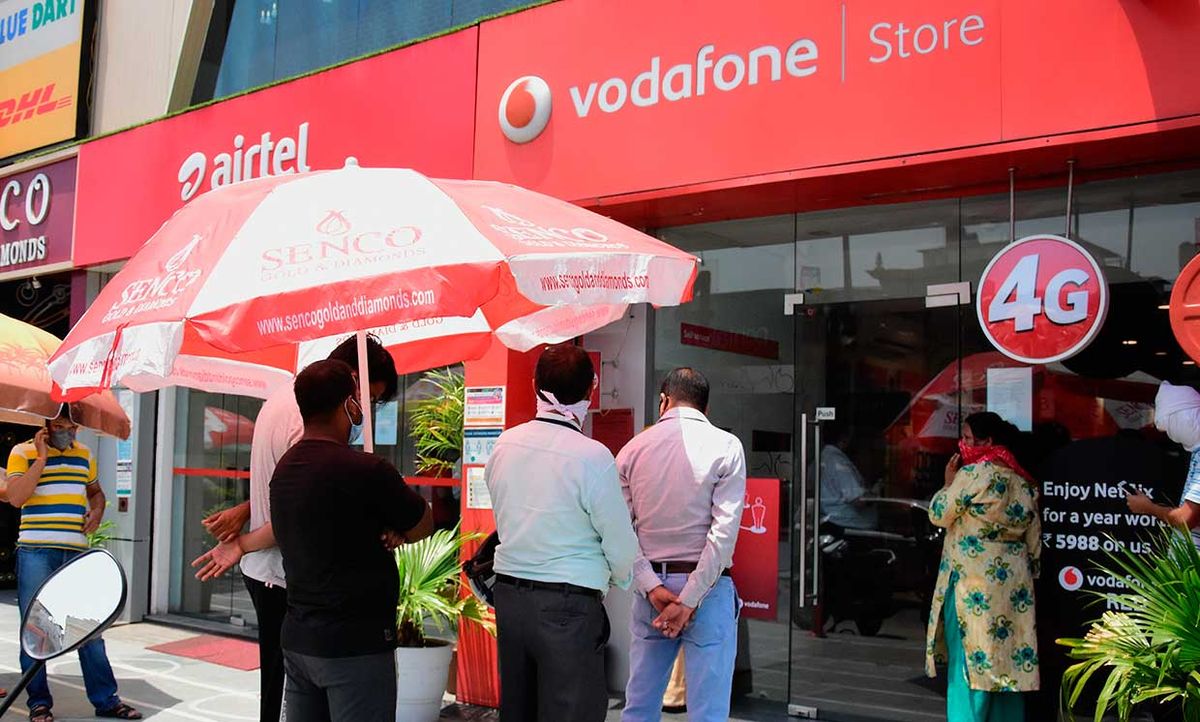India’s Telecom Disputes Settlement and Appellate Tribunal (TDSAT) has granted interim relief to telecom companies Bharti Airtel and Vodafone Idea, allowing them to continue with their premium-service plans. The TDSAT order came on 18 July, exactly a week after the country’s telecom regulatory authority had blocked the two companies from offering better speeds to higher-paying customers, citing net neutrality violations.
“This is not a final determination by the TDSAT,” says Apar Gupta of the Internet Freedom Foundation, a digital liberties organization that has been at the forefront of the fight for online freedom, privacy, and innovation in India. While the Telecom Regulatory Authority of India (TRAI) continues with its inquiry, the two providers will not be prevented from rolling out their plains.
The matter was brought to TRAI’s notice on 8 July by a rival mobile service provider, Reliance Jio, which wrote to the regulatory body asking about Airtel’s and Vodafone Idea’s Platinum and RedX plans, respectively. “Before offering any such plans ourselves…we would like to seek the Authority’s views on whether [these] tariff offerings…are in compliance with the extant regulatory framework,” the letter said.
Three days later, TRAI asked for the respective Airtel and Vodafone Idea plans to be blocked while these claims were investigated. It also sent both telcos a 10-point questionnaire related to various elements of their services, seeking clarification on how they defined “priority 4G network” and “faster speeds,” among other things. Following the blocking of the plans, Vodafone Idea approached TDSAT, arguing that TRAI’s order was illegal and arbitrary, considering that their RedX plan had been rolled out over eight months earlier. When contacted for comment on the matter, Vodafone declined, “as the matter is in TDSAT court.” Airtel, meanwhile, has agreed to comply with TRAI’s directive and not take new customers for its Platinum plan until the matter has been fully investigated.
Although it is being framed as such by media coverage and in the court of public opinion, strictly speaking, the offering of new tariffs by Airtel and Vodafone Idea are not net neutrality concerns, says Nikhil Pahwa, co-founder of Save the Internet, the campaign that played a key role in framing India’s net neutrality rules. “In India, net neutrality regulation covers…whether specific internet services or apps are either being priced differentially or being offered at speeds different from the rest of the Internet.” However, from a consumer perspective, he adds, “I think it is important for the TRAI to investigate these plans because…it is impossible for telecom operators to guarantee speeds for customers. What needs to be investigated is whether speeds are effectively deprecated for a particular set of consumers, because the throughput from a mobile base station is limited.”
Since July 2018, India has had stringent net neutrality regulations in place—possibly among the strongest in the world—at least on paper. Any form of data discrimination is banned; blocking, degrading, slowing down or granting preferential speeds or treatment by providers is prohibited; and Internet service providers stand to lose their licenses if found in violation. This was the result of a massive, public, volunteer-driven campaign since 2015. Save the Internet estimates that over 1 million citizens were part of the campaign at one point or another.
The concept of net neutrality captured public imagination when, in 2014, Airtel decided it would charge extra for VoIP services. The company pulled its plan after public outcry, but the wheels of differential pricing were set in motion. This resulted in TRAI prohibiting discriminatory tariffs for data services in 2016—a precursor to the net neutrality principles adopted two years later. These developments also forced Facebook to withdraw its zero-rated Free Basics service in India.
“We have not seen net neutrality enforcement in India till now in a very clear manner,” says Gupta, adding that TRAI is in the process of coming up with an enforcement mechanism. “They opened a consultation on it, and invited views from people… Right now they’re in the process of making…recommendations to the Department of Telecom, which can then frame them under the Telegraph Act.” The telecom department exercises wider powers under this Act, even though TRAI also has specific powers in administering certain licensing conditions, including quality of service and interconnection.
“[The] internet is built around the idea that all users have equal right to create websites, applications, and services for the rest of the world, and enables innovation because it is a space with infinite competition,” Pahwa says. And net neutrality is at the core of that freedom.
Payal Dhar (she/they) is a freelance journalist on science, technology, and society. They write about AI, cybersecurity, surveillance, space, online communities, games, and any shiny new technology that catches their eye. You can find and DM Payal on Twitter (@payaldhar).



